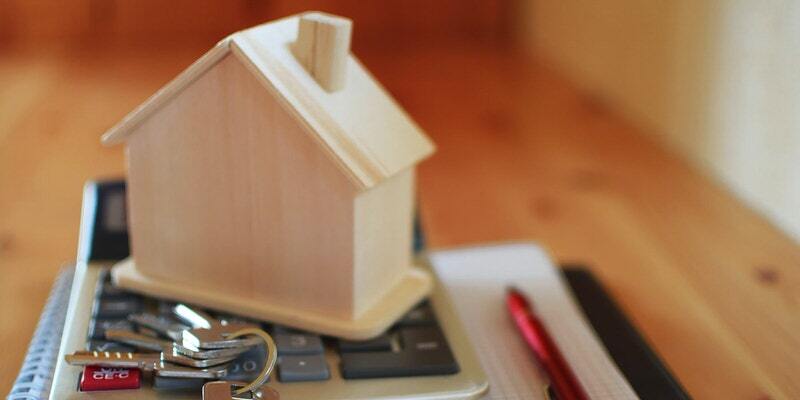Access Your Home Equity
Tara Gentles • March 30, 2021

If you've been a homeowner for many years, chances are, your property value has increased significantly. One advantage of homeownership is the opportunity to build equity. Home equity growth, partnered with the security of living in your own home, is why most Canadians believe homeownership is the best choice for them!
For most Canadians, their home equity is their greatest asset, but accessing home equity is often overlooked when putting together a comprehensive financial plan. And although COVID-19 has caused some grief in the economy of late, house prices have remained stable or increased in value through 2020.
Simply put, home equity is the actual market value of your property minus what you owe. For instance, if your home has a market value of $650k and you owe $150k, you have $500k in home equity.
Now, if you aren't interested in selling your home but you'd like to be able to access the equity you have built up over the years, for whatever reason, you've come to the right place. Here are four options for you to consider.
Conventional Mortgage Refinance
Assuming you qualify for the mortgage, most lenders will allow you to borrow up to 80% of your property’s value through a conventional refinance.
So let’s say your property is worth $500k and you owe $300k on your existing mortgage; if you were to refinance up to 80%, you would qualify to borrow $400k, so after paying out your first mortgage of $300k, you’d end up with $100k (minus any fees to break your mortgage) to spend however you like. Even if you paid off your mortgage years ago and you own your property with a clear title (no mortgage), you can secure a new mortgage to your property.
With the impact of COVID-19 on our economy, interest rates are historically low right now. It never hurts to take a look at your options.
Reverse Mortgage
A reverse mortgage allows Canadian homeowners 55 or older to turn the equity in their home into tax-free cash. There is no income or credit verification, you maintain ownership of your home, and you aren't required to make any mortgage payments. The full amount of the mortgage will become due when you decide to move or sell.
Unlike a conventional mortgage refinance, reverse mortgages won’t allow you to borrow up to 80% of your home equity. Rather, a lesser amount of equity can be accessed depending on your age.
The interest rates here can be slightly higher than the best rates currently being offered through standard mortgage financing. However, the interest rates on reverse mortgages aren’t outrageous; rather, they reflect the relaxed qualification guidelines.
Home Equity Line of Credit (HELOC)
A Home Equity Line of Credit allows you to set up access to the equity you have in your home, but you only pay interest if you use it. Qualifying for a HELOC can be challenging as lender criteria can be pretty strict. Unlike a conventional mortgage, a HELOC doesn't usually have an amortization, so you're only required to make the interest payments on the amount you've borrowed.
Second Position Mortgage
If the cost to break your mortgage is really high, but you need access to cash before your existing mortgage renews, consider a second mortgage.
A second mortgage typically has a set amount of time you have to repay the loan (term) as well as a fixed interest rate (usually higher than conventional financing). After you have received the loan proceeds, you can spend the money any way you like, but you will need to make regular payments on the second mortgage until it's paid off.
If you’re looking for a way to access the equity in your home to free up some cash to spend however you like, please contact me anytime. You’ve got options and I would love to work through all those options with you.
Tara Gentles
CANADIAN MORTGAGE EXPERT

RECENT POSTS

Mortgage Registration 101: What You Need to Know About Standard vs. Collateral Charges When you’re setting up a mortgage, it’s easy to focus on the rate and monthly payment—but what about how your mortgage is registered? Most borrowers don’t realize this, but there are two common ways your lender can register your mortgage: as a standard charge or a collateral charge . And that choice can affect your flexibility, future borrowing power, and even your ability to switch lenders. Let’s break down what each option means—without the legal jargon. What Is a Standard Charge Mortgage? Think of this as the “traditional” mortgage. With a standard charge, your lender registers exactly what you’ve borrowed on the property title. Nothing more. Nothing hidden. Just the principal amount of your mortgage. Here’s why that matters: When your mortgage term is up, you can usually switch to another lender easily —often without legal fees, as long as your terms stay the same. If you want to borrow more money down the line (for example, for renovations or debt consolidation), you’ll need to requalify and break your current mortgage , which can come with penalties and legal costs. It’s straightforward, transparent, and offers more freedom to shop around at renewal time. What Is a Collateral Charge Mortgage? This is a more flexible—but also more complex—type of mortgage registration. Instead of registering just the amount you borrow, a collateral charge mortgage registers for a higher amount , often up to 100%–125% of your home’s value . Why? To allow you to borrow additional funds in the future without redoing your mortgage. Here’s the upside: If your home’s value goes up or you need access to funds, a collateral charge mortgage may let you re-borrow more easily (if you qualify). It can bundle other credit products—like a line of credit or personal loan—into one master agreement. But there are trade-offs: You can’t switch lenders at renewal without hiring a lawyer and paying legal fees to discharge the mortgage. It may limit your ability to get a second mortgage with another lender because the original lender is registered for a higher amount than you actually owe. Which One Should You Choose? The answer depends on what matters more to you: flexibility in future borrowing , or freedom to shop around for better rates at renewal. Why Talk to a Mortgage Broker? This kind of decision shouldn’t be made by default—or by what a single lender offers. An independent mortgage professional can help you: Understand how your mortgage is registered (most people never ask!) Compare lenders that offer both options Make sure your mortgage aligns with your future goals—not just today’s needs We look at your full financial picture and explain the fine print so you can move forward with confidence—not surprises. Have questions? Let’s talk. Whether you’re renewing, refinancing, or buying for the first time, I’m here to help you make smart, informed choices about your mortgage. No pressure—just answers.

Ready to Buy Your First Home? Here’s How to Know for Sure Buying your first home is exciting—but it’s also a major financial decision. So how can you tell if you’re truly ready to take that leap into homeownership? Whether you’re confident or still unsure, these four signs are solid indicators that you’re on the right path: 1. You’ve Got Your Down Payment and Closing Costs in Place To purchase a home in Canada, you’ll need at least 5% of the purchase price as a down payment. In addition, plan for around 1.5% to 2% of the home’s value to cover closing costs like legal fees, insurance, and adjustments. If you’ve managed to save this on your own, that’s a great sign of financial discipline. If you're receiving help from a family member through a gifted down payment , that works too—as long as the paperwork is in order. Either way, having these funds ready shows you’re prepared for the upfront costs of homeownership. 2. Your Credit Profile Tells a Good Story Lenders want to know how you manage debt. Before they approve you for a mortgage, they’ll review your credit history. What they typically like to see: At least two active credit accounts (trade lines) , like a credit card or loan Each with a minimum limit of $2,000 Open and active for at least 2 years Even if your credit isn’t perfect, don’t panic. There may still be options, such as using a co-signer or working on a credit improvement plan with a mortgage expert. 3. Your Income Can Support Homeownership—Comfortably A steady income is essential, but not all income is treated equally. If you’re full-time and past probation , you’re in a strong position. If you’re self-employed, on contract, or rely on variable income like tips or commissions, you’ll generally need a two-year history to qualify. A general rule: housing costs (mortgage, taxes, utilities) should stay under 35% of your gross monthly income . That leaves plenty of room for other living expenses, savings, and—yes—some fun too. 4. You’ve Talked to a Mortgage Professional Let’s be real—there’s a lot of info out there about buying a home. Google searches and TikToks can only take you so far. If you're serious about buying, speaking with a mortgage professional is the most effective next step. Why? Because you'll: Get pre-approved (and know what price range you're working with) Understand your loan options and the qualification process Build a game plan that suits your timeline and financial goals The Bottom Line: Being “ready” to buy a home isn’t just about how much you want it—it’s about being financially prepared, credit-ready, and backed by expert advice. If you’re thinking about homeownership, let’s chat. I’d love to help you understand your options, crunch the numbers, and build a plan that gets you confidently across the finish line—keys in hand.

